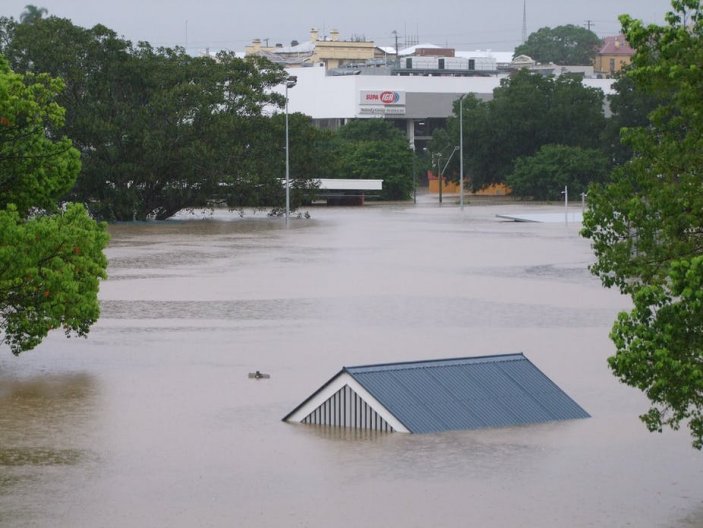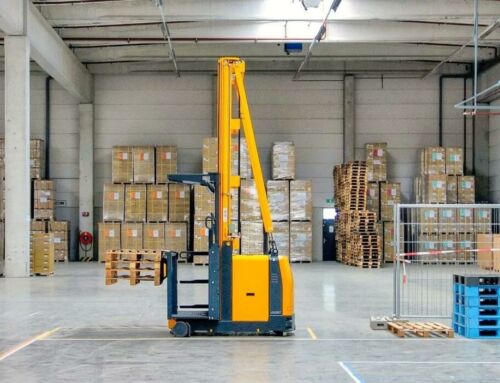
Does your business have an extreme weather plan?
Extreme weather conditions are increasing around the world, and Australia is no exception, with severe bushfires, storms and floods all set to increase.
In the absence of the vast resources of larger organisations, there is an urgent need for small businesses to have specific plans in place.
Preparing your property and fully understanding the risks in the event of extreme weather events, in both regional and urban areas, such as storms, fire and floods is vital. However you also need an overall strategy to protect your business and its assets to ensure its survival.
Building a support network
After Cyclone Larry hit Queensland in 2006, a National Climate Change Adaptation Research Facility report found businesses and individuals with strong community ties recovered better, as they relied less on overburdened government systems and their workers were less inclined to leave the area.
“Individuals, households and groups who have strong social networks are able to draw on shared material and social resources to sustain them during and through the aftermath of a cyclone,” the report said.
In both urban and rural settings, banding together during a crisis can be mutually beneficial. Having a plan for how small businesses can help each other can be the key to survival.
After the northern NSW town of Murwillumbah was ravaged by flood in 2017, locals led the recovery effort and a database of hundreds of volunteers was created to help those in need.
“Constantly we’re expecting governments and services to fix things for us,” organiser Carmen Stewart told the ABC. “I’m interested in what happens when a community is engaged first, then bringing government and services in as a partner, not as the leaders.”
Be prepared
Complacency and a failure to adapt to the increased likelihood of extreme weather is a real danger for small businesses. Research conducted by James Cook University revealed 90 per cent of cyclone-related insurance claims could be avoided through proper preparation.
Ensure you have formulated an emergency action plan for your business in the event of extreme weather, such as flooding. Educate your employees so they understand the risks and know how to react.
There are other vital proactive measures you can take. Regular maintenance on your property ensures it is as well placed as possible to handle and recover from extreme weather events. Contracting an expert to assess the structural integrity of your dwelling ensures any weak or degrading materials particularly vulnerable to damage can be repaired.
Clearing your property of refuse, such as fallen branches and bushes can help to ensure any damage severe storms can cause is limited. This includes securing outdoor items and garaging vehicles and machinery.
During Brisbane’s 2011 flooding, photos of David Moore’s destroyed waterside restaurant Drift became symbolic of the widespread devastation. Moore’s repair cost was $4 million. Without insurance and eligible only for minimal compensation, he went into liquidation.
Uninsured or underinsured small businesses are unlikely to survive the catastrophic losses that extreme weather can bring, because the majority don’t have the large financial assets needed to recover.
There are a number of different aspects to underinsurance,
- Businesses do not have insurance at all (e.g. they own a building but do not insure it).
2.Business owners insure the physical assets but they don’t take business interruption insurance. This is very common – business owners can see that their physical assets may be damaged but they don’t understand there could be financial consequences of that.
- Business owners take out a policy and the sum insured is inadequate, e.g. they insure for $500,000 but the actual replacement cost is $1 million – if there is a total loss, the client gets $500,000; if there is a partial loss the amount payable is written down to reflect the underinsurance.”
A Harvard Business Review study analysing the impact of 2012’s Hurricane Sandy found small businesses were affected badly by extreme weather for a number of reasons.
“Firms may be especially unlikely to prepare for infrequent events such as major hurricanes since they are exposed to so many risks that occur with a higher likelihood,” wrote Benjamin Collier, Assistant Professor Risk, Insurance & Healthcare Management.
But Collier is adamant small businesses need to understand extreme weather and natural disasters will likely become increasingly common.
Businesses should consult their insurance brokers to help ensure they are not uninsured or under-insured. For expert advice on the best insurance solutions for your business, talk to one of our Qualified Professional Insurance Brokers on (07) 5482 7485 or email us here.


